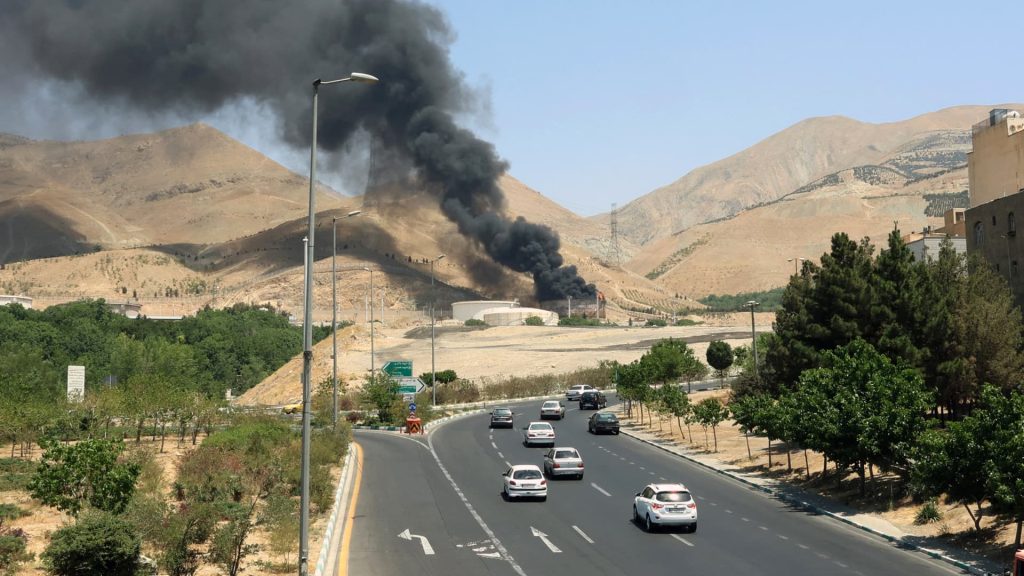Smoke billows for the second day from the Shahran oil depot, northwest of Tehran, on June 16, 2025.
– | Afp | Getty Images
Top oil chief executives have raised the alarm over Israel and Iran’s escalating conflict, warning about the consequences of further attacks on key energy infrastructure.
Israel’s surprise attack on Iran’s military and nuclear infrastructure on Friday has been followed by four days of spiraling warfare between the regional foes.
Some oil and gas facilities have been hit in both countries in recent days, although major energy infrastructure and crude flows have so far been spared.
The potential for major supply disruption remains a key concern, however, particularly worst-case scenarios such as Iran blocking the highly strategic Strait of Hormuz.

“The last 96 hours have been very concerning … both for the region but more broadly in terms of where the global energy system is going given the uncertainty and the backdrop that we see right now and the geopolitical volatility,” Shell CEO Wael Sawan told CNBC’s JP Ong on Tuesday.
Speaking at the Energy Asia conference in Kuala Lumpur, Malaysia, Shell’s Sawan said the London-listed company has a “significant footprint” in the Middle East, both in terms of operated assets and shipments.
“How we navigate over the coming days and weeks, the situation is something that is particularly top of mind for myself, and the leadership team,” Sawan said.
Security concerns
Oil prices traded higher on Tuesday, extending recent gains.
International benchmark Brent crude futures with August stood at $75.29 per barrel at 3:00 p.m. London time, up more than 2.8%. U.S. West Texas Intermediate futures with July delivery, meanwhile, was last seen up 2.5% at $73.55.
Oil traders see the Israel-Iran conflict as the most significant geopolitical event since Russia launched its full-scale invasion of Ukraine in 2022.

TotalEnergies CEO Patrick Pouyanné said the French oil giant’s primary concern amid Israel-Iran tensions is the security of its regional employees.
“We are the largest international oil company in the region. We were born 100 years ago in Iraq, and we still have operations in Iraq, Abu Dhabi, Qatar and Saudi Arabia,” Pouyanné told CNBC on the sidelines of the same event.
Pouyanné said he hoped further strikes would not concern oil installations “because this could become a real problematic hit, not only in terms of safety and hazards and risks, but also in terms of global markets.”
‘The year of volatility’
As Israel and Iran continue to exchange strikes, some shipowners have started to steer clear from the Strait of Hormuz.
The waterway, which connects the Persian Gulf to the Arabian Sea, is recognized as one of the world’s most important oil chokepoints.
The inability of oil to traverse through the Strait of Hormuz, even temporarily, can ratchet up global energy prices, raise shipping costs and create significant supply delays.
Market watchers remain skeptical that Iran will seek to close the waterway, however, suggesting it might even be physically impossible.

Amjad Bseisu, CEO of U.K.-based EnQuest, described 2025 as “the year of volatility.”
“It’s almost like every day we see something different but obviously this war between Israel and Iran is another step up,” Bseisu told CNBC on Tuesday.
“The quicker we can come to an end of this terrible conflict, the better for overall markets but I do think that the market is well supplied in the short to medium term,” he added.

